In yesterday’s posting we gave a brief introduction to BUCRU. Today we introduce you to the members of the team.
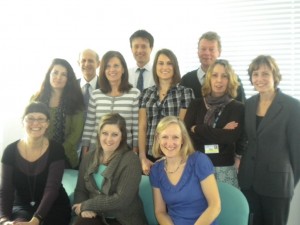
Louise Ward
Louise is one of the administrators for the unit and has been with the team since 2008. She has worked in various NHS settings and has an interest in marketing. Both her undergraduate and Masters degrees were studied here at Bournemouth University.
Professor Paul Thompson
Paul is Consultant Rheumatologist at Poole Hospitaland Visiting Professor at BU. He was appointed Director of the Centre of Postgraduate Medical Research and Education (CoPMRE) in 2007, where he has been leading developments between research and education active doctors in NHS Trusts and the academic community at the University. He is Co-director of BUCRU, Lead for the musculoskeletal local priority group for the Western Comprehensive Local Research Network (CLRN) and Fellow of the NHS Improvement Faculty. He is interested in clinical research and service development in the rheumatic diseases. He supervises PhD students and is an External Examiner at other Universities.
Dr Sarah Thomas
Sarah is Deputy Director (methodology). She has a background in psychology and since 2000 has worked in the NHS in Dorset. As well as supporting other researchers in a Research Design Service capacity, she also conducts research. Her main research interests are in the field of multiple sclerosis (MS) and she is currently Chief Investigator for a pilot study funded by the UK MS Society exploring the use of the Nintendo Wii™ in people with MS.
Professor Peter Thomas
Peter is Co-Director and leads on research methodology. He has a background in epidemiology and statistics, and has been with Bournemouth University since 1996. He has a special research interest in psychosocial aspects of chronic disease and much of his recent work has focussed on multiple sclerosis.
Dr Zoe Sheppard
Zoe is a demographer with particular experience investigating socio-economic status. She joined Bournemouth University in October 2009 as a Research Fellow in Research Methods. She provides research methods support for people doing health research and support writing grant applications in her National Institute for Health Research (NIHR) Research Design Service (RDS) capacity.
Suzanne Sheppard
Suzanne is a Clinical Researcher recently recruited from the pharmaceutical industry to help manage the unit’s clinical trials. She has experience in setting-up and monitoring clinical trials across phases 1 to 3 in a variety of therapeutic areas.
Annabel Kenny
Annabel is a Clinical Research Administrator who joined Bournemouth University in October 2009. She provides support to Dr. Tamas Hickish, Consultant Medical Oncologist, Royal Bournemouth Hospital/Poole Hospital and the rest of the research team on various ongoing research projects within the Bournemouth University Clinical Research Unit.
Liz Griffiths
Liz works for the Royal Bournemouth Hospital as a research facilitator. She has been working in research within the NHS since 2003 in a variety of roles. Currently focusing on supporting researchers to develop proposals and prepare submissions to regulatory authorities.
Louise Fazakarley
Louise is a Physiotherapy lecturer with experience in neurological rehabilitation, the management of chronic disability and rehabilitation research. She joined Bournemouth University in 2006 to establish and teach on the BSc (Hons) Physiotherapy course. Louise is currently working on the MS Society funded pilot study to look at the Nintendo Wii™ as a method of helping people with MS increase their physical activity.
Audrey Dixon
Audrey is the Centre of Postgraduate Medical Research and Education (CoPMRE) co-ordinator and co-administrator for BUCRU. She has worked for the NHS since 1988. She first joined Professor Paul Thompson in 2001 to assist him with his academic work, following his secondment to the university. Audrey was seconded to BU in 2003. She now looks after a growing Visiting Faculty of 41 members and the education arm of CoPMRE. She is very proud to see the little acorn grow into a Centre of Postgraduate Medical Research and Education and BUCRU.
Roger Baker
Roger is Professor of Clinical Psychology and runs the MSc course Foundations in Clinical Psychology at BU. He is also a Consultant Clinical Psychologist at Dorset Healthcare University NHS Foundation Trust. He has expertise in the design of assessments and questionnaires, research design and clinical evaluation of services and has worked in a dual role as researcher and clinical psychologist at Leeds, Aberdeen & Bournemouth Universities and in NHS Trusts specialising in Mental Health.
Helen Allen
Helen is a health psychologist with a nursing and midwifery background. She has a qualitative background with a particular interest in the mind:body interface and chronic disease, including patient empowerment. She is the Unit lead on Public Patient Involvement.
Contact us: In the first instance please contact:
Louise Ward (administrator):
Bournemouth University Clinical Research Unit
R505 Royal London House
Christchurch Road
Bournemouth BH1 3LT
Tel: 01202 961939
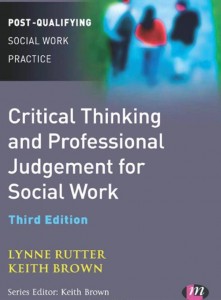
 Last month
Last month 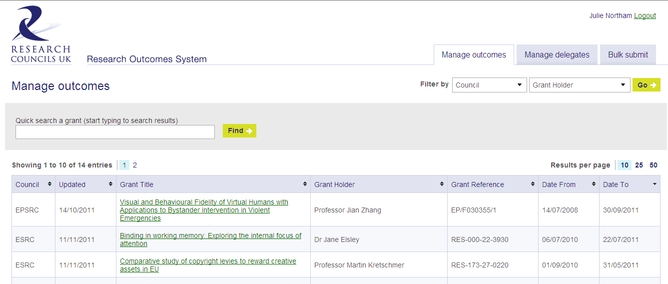

 The
The  I am sure that you would wish to join with me in congratulating both
I am sure that you would wish to join with me in congratulating both  The two projects of most relevance for open access publishing are SHERPA
The two projects of most relevance for open access publishing are SHERPA  With many of the leading journals in the field of Tourism and related studies now recording rejection rates in excess of 90%, the pressure is on all of us with an interest in publishing in such journals to enhance our level of engagement with the variety of alternative research methodologies available to us and to deepen our level of knowledge of those deemed most appropriate; as well as to improve the level of rigour with which we apply them in our work! In addition to constructive criticism from panel members of the level of conceptual and theoretical engagement in many papers reviewed for RAE2008, feedback from reviewers points to methodological weaknesses in papers submitted and a sense of frustration over the a lack of rigour and an apparent unwillingness to try contemporary approaches.
With many of the leading journals in the field of Tourism and related studies now recording rejection rates in excess of 90%, the pressure is on all of us with an interest in publishing in such journals to enhance our level of engagement with the variety of alternative research methodologies available to us and to deepen our level of knowledge of those deemed most appropriate; as well as to improve the level of rigour with which we apply them in our work! In addition to constructive criticism from panel members of the level of conceptual and theoretical engagement in many papers reviewed for RAE2008, feedback from reviewers points to methodological weaknesses in papers submitted and a sense of frustration over the a lack of rigour and an apparent unwillingness to try contemporary approaches. 
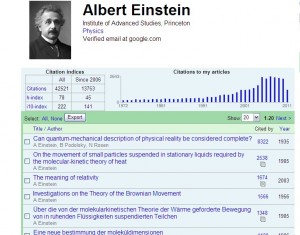
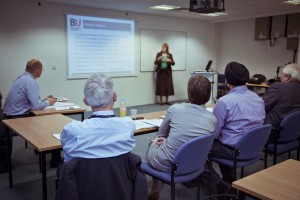 on Culinary Arts and Science
on Culinary Arts and Science
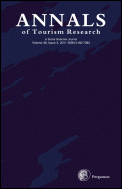
 The Annals of Tourism Research is rated a 4* journal in the
The Annals of Tourism Research is rated a 4* journal in the 



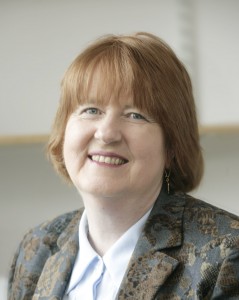 Professor Stella Fearnley’s
Professor Stella Fearnley’s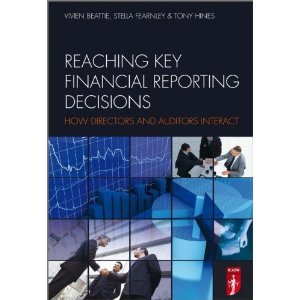 “Public discussion of corporate reporting and auditing is frustrated by the fact that directors and auditors debate issues and take decisions in private. The need to respect confidentiality means that policy makers and the public find insiders’ accounts of what happens bland and unconvincing. The resulting lack of public information is particularly dangerous at the present time when the financial crisis is prompting questions about whether new regulation is called for.”
“Public discussion of corporate reporting and auditing is frustrated by the fact that directors and auditors debate issues and take decisions in private. The need to respect confidentiality means that policy makers and the public find insiders’ accounts of what happens bland and unconvincing. The resulting lack of public information is particularly dangerous at the present time when the financial crisis is prompting questions about whether new regulation is called for.”










 SPROUT: From Sustainable Research to Sustainable Research Lives
SPROUT: From Sustainable Research to Sustainable Research Lives BRIAN upgrade and new look
BRIAN upgrade and new look Seeing the fruits of your labour in Bangladesh
Seeing the fruits of your labour in Bangladesh Exploring Embodied Research: Body Map Storytelling Workshop & Research Seminar
Exploring Embodied Research: Body Map Storytelling Workshop & Research Seminar Marking a Milestone: The Swash Channel Wreck Book Launch
Marking a Milestone: The Swash Channel Wreck Book Launch ECR Funding Open Call: Research Culture & Community Grant – Application Deadline Friday 12 December
ECR Funding Open Call: Research Culture & Community Grant – Application Deadline Friday 12 December MSCA Postdoctoral Fellowships 2025 Call
MSCA Postdoctoral Fellowships 2025 Call ERC Advanced Grant 2025 Webinar
ERC Advanced Grant 2025 Webinar Update on UKRO services
Update on UKRO services European research project exploring use of ‘virtual twins’ to better manage metabolic associated fatty liver disease
European research project exploring use of ‘virtual twins’ to better manage metabolic associated fatty liver disease